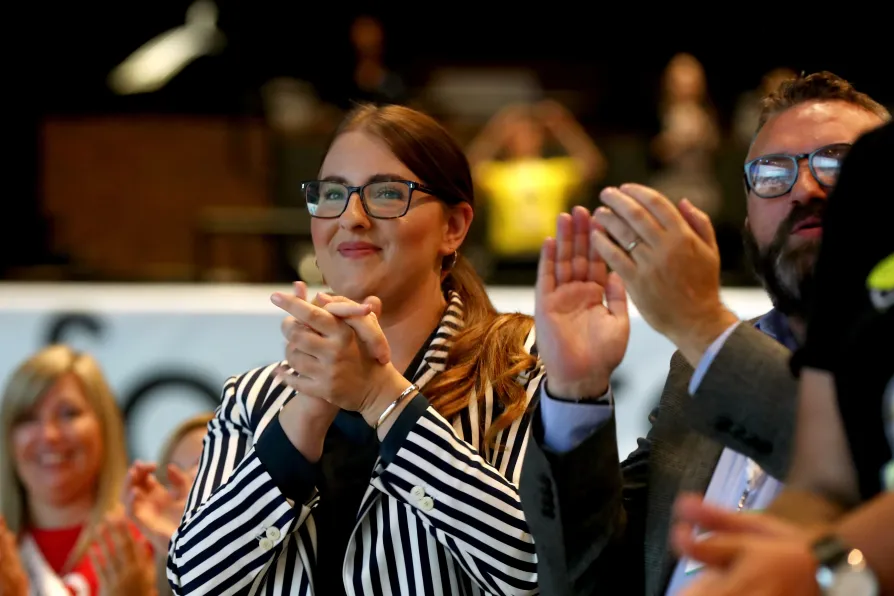DIANE ABBOTT explodes the anti-migrant myths perpetrated by cynical politicians and an irresponsible mass media
In government, we’ll be knocking down walls for the trade union movement
Labour will be working together with the unions, hand in hand, to transform our society, says LAURA PIDCOCK

 Laura Pidcock applauds at TUC Congress
Laura Pidcock applauds at TUC Congress
I, LIKE the rest of our party, am immensely proud of the historic link between the trade union movement and the Labour Party.
And I will never apologise for seeing the unions as an equal partner in this movement.
That’s why Jeremy Corbyn has made the ministry of employment rights such a central plank in what Labour will do in government.
More from this author

LAURA PIDCOCK explains how the party will help create a better work-life balance for all

Shadow employment rights minister LAURA PIDCOCK says it's time for real changes to the world of work

As Boris Johnson is crowned leader of the Tory Party and our next Prime Minister, we print LAURA PIDCOCK’S speech to the Not My Prime Minister People’s Assembly rally at Downing Street














